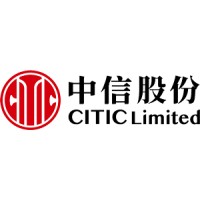
AMP Company Cyber Security Posture
amp.com.auBeginning in 1849 as the Australian Mutual Provident Society, today AMP Limited is a retail wealth management and banking business supporting approximately 1.5 million customers across Australia and New Zealand. We offer expertise in financial advice, superannuation and banking to help people achieve their financial goals and create their tomorrow. For information on AMP products and services; Australia: Visit amp.com.au or call 133 888 within Australia New Zealand: Visit amp.co.nz or call 0800 267 111 within New Zealand Community guidelines: Please note, AMP has the right to remove any comment or material published to our page that we consider defamatory, offensive, unlawful, indecent, misleading, false, deceitful, profane, or threatening to users or the company. We will also delete comments that are negative or hateful towards race, sexuality, gender, ethnicity, religion, disability, age, social status, or education. Any public posts that include personal details will be deleted for privacy purposes. Comments that are considered off-topic or spam may also be subject to removal.
AMP Company Details
amp
4855 employees
99174.0
52
Financial Services
amp.com.au
Scan still pending
AMP_2947498
In-progress
Between 800 and 900
This score is AI-generated and less favored by cyber insurers, who prefer the TPRM score.
 AMP Global Score
AMP Global Score.png)

AMP Company Scoring based on AI Models
| Model Name | Date | Description | Current Score Difference | Score |
|---|---|---|---|---|
| AVERAGE-Industry | 03-12-2025 | This score represents the average cybersecurity rating of companies already scanned within the same industry. It provides a benchmark to compare an individual company's security posture against its industry peers. | N/A | Between 800 and 900 |
AMP Company Cyber Security News & History
| Entity | Type | Severity | Impact | Seen | Url ID | Details | View |
|---|---|---|---|---|---|---|---|
| AMP | Data Leak | 60 | 3 | 04/2017 | AMP18201123 | Link | |
Rankiteo Explanation : Attack with significant impact with internal employee data leaksDescription: A data breach at online trading company AMP that revealed Social Security numbers and credit reports for customers was discovered, according to security expert Chris Vickery. Over 10,000 account applicants' sensitive information is also included in the files, which show that AMP has over $50 million in assets on hand. Vickery found that a backup device run by a third-party IT vendor had been improperly configured, causing a data leak that has now been repaired. A genuine identity theft operation could require a plethora of information, which is why credit reports, passport scans, internal company emails, customer chat logs, and more are all included in the compromised data. | |||||||
AMP Company Subsidiaries

Beginning in 1849 as the Australian Mutual Provident Society, today AMP Limited is a retail wealth management and banking business supporting approximately 1.5 million customers across Australia and New Zealand. We offer expertise in financial advice, superannuation and banking to help people achieve their financial goals and create their tomorrow. For information on AMP products and services; Australia: Visit amp.com.au or call 133 888 within Australia New Zealand: Visit amp.co.nz or call 0800 267 111 within New Zealand Community guidelines: Please note, AMP has the right to remove any comment or material published to our page that we consider defamatory, offensive, unlawful, indecent, misleading, false, deceitful, profane, or threatening to users or the company. We will also delete comments that are negative or hateful towards race, sexuality, gender, ethnicity, religion, disability, age, social status, or education. Any public posts that include personal details will be deleted for privacy purposes. Comments that are considered off-topic or spam may also be subject to removal.
Access Data Using Our API

Get company history
.png)
AMP Cyber Security News
Forbes: 16 Billion Passwords, Login Credentials Leaked
Forbes is reporting that 16 billion passwords and login credentials have been leaked to bad actors on the dark web.
New York, California gear up to scrutinize bank cybersecurity
State financial regulators in New York are expected to ratchet up their enforcement of cybersecurity regulations as amendments to these rules take effect.
Vibrint Acquires Ampsight to Build National Security Footprint, Broaden Mission Solutions
Defense tech leader Vibrint acquires AI, cloud, and cyber innovator Ampsight to build national security footprint, broaden mission solutions.
Best cybersecurity bootcamps for 2025
The best cybersecurity bootcamps of 2025 · 1. Best overall: Nucamp · 2. Best for live support and digital access: DigitalCrafts · 3. Best for ...
100 Cybersecurity Leaders In ANZ Who Are Making A Difference
Here is a list of 100 cybersecurity leaders in the ANZ region who have helped secure organizations in the face of growing cyber threats.
Guernsey to launch cyber security centre
A new cyber security centre is being established in Guernsey to bolster the island's defences against the growing threat of cyber-attacks, ...
Govt asks RBI, NPCI, others to amp up cyber security amid widening conflict with Pakistan
The finance ministry's advisory follows similar alerts by CERT-In and RBI to step up security against possible cyberattacks.
Tim Niblett Appointed Head of Security Operations at The Missing Link
The Missing Link has appointed Tim Niblett as its head of security operations. Having lived and worked in the UK, France, Spain, and Australia.
Kansas State University Engineer Secures $560,000 NSF Grant to Develop Advanced Cybersecurity Framework for AI in Bioinformatics
A Kansas State University engineer is developing advanced cybersecurity tools for artificial intelligence applications in bioinformatics ...

AMP Similar Companies

Vanguard
Join us as we celebrate 50 years of empowering our 50 million investor-owners.* Since our founding in 1975, we’ve been on a mission to help investors achieve their goals. With no outside shareholders to answer to, we make decisions—including keeping investing costs as low as possible—with our clien

Legal & General
Legal & General is a leading UK financial services group and major global investor. Our three divisions enable us to carefully invest capital over the long term in a responsible way that delivers returns to shareholders while doing good. Along with growing our pension risk transfer business, our s

CIMB
CIMB Group is a leading ASEAN universal bank, one of the largest Asian investment banks and one of the world's largest Islamic banks. We are headquartered in Kuala Lumpur, Malaysia and offer consumer banking, commercial banking, wholesale banking, Islamic banking, and asset management products and

CITIC Limited
CITIC Limited (SEHK: 00267) is one of China's largest conglomerates and a constituent of the Hang Seng Index. Tracing our roots to the beginning of China’s opening and reform, CITIC has grown in step with the country's rise and modernisation. We have built a remarkable portfolio of businesses in com

Societe Generale Corporate and Investment Banking - SGCIB
We support you over time, during expansion phases and their more challenging periods alike. By providing a full range of solutions suited to your needs, we play a facilitating role to help you realise your ambitions and leverage your potential. This is why we intend to develop an authentic advisory

USAA
Since the beginning, our mission has been to provide a range of financial services to the military community and their families. Along the way, we’ve also established ourselves as a destination employer for passionate people looking to serve those who are willing to give it their all. Our mission

Frequently Asked Questions (FAQ) on Cybersecurity Incidents
AMP CyberSecurity History Information
Total Incidents: According to Rankiteo, AMP has faced 1 incidents in the past.
Incident Types: The types of cybersecurity incidents that have occurred include ['Data Leak'].
Total Financial Loss: The total financial loss from these incidents is estimated to be {total_financial_loss}.
Cybersecurity Posture: The company's overall cybersecurity posture is described as Beginning in 1849 as the Australian Mutual Provident Society, today AMP Limited is a retail wealth management and banking business supporting approximately 1.5 million customers across Australia and New Zealand. We offer expertise in financial advice, superannuation and banking to help people achieve their financial goals and create their tomorrow. For information on AMP products and services; Australia: Visit amp.com.au or call 133 888 within Australia New Zealand: Visit amp.co.nz or call 0800 267 111 within New Zealand Community guidelines: Please note, AMP has the right to remove any comment or material published to our page that we consider defamatory, offensive, unlawful, indecent, misleading, false, deceitful, profane, or threatening to users or the company. We will also delete comments that are negative or hateful towards race, sexuality, gender, ethnicity, religion, disability, age, social status, or education. Any public posts that include personal details will be deleted for privacy purposes. Comments that are considered off-topic or spam may also be subject to removal..
Detection and Response: The company detects and responds to cybersecurity incidents through {description_of_detection_and_response_process}.
Incident Details
Incident 1: Ransomware Attack
Title: {Incident_Title}
Description: {Brief_description_of_the_incident}
Date Detected: {Detection_Date}
Date Publicly Disclosed: {Disclosure_Date}
Date Resolved: {Resolution_Date}
Type: {Type_of_Attack}
Attack Vector: {Attack_Vector}
Vulnerability Exploited: {Vulnerability}
Threat Actor: {Threat_Actor}
Motivation: {Motivation}
Incident 2: Data Breach
Title: {Incident_Title}
Description: {Brief_description_of_the_incident}
Date Detected: {Detection_Date}
Date Publicly Disclosed: {Disclosure_Date}
Date Resolved: {Resolution_Date}
Type: {Type_of_Attack}
Attack Vector: {Attack_Vector}
Vulnerability Exploited: {Vulnerability}
Threat Actor: {Threat_Actor}
Motivation: {Motivation}
Common Attack Types: As of now, the company has not encountered any reported incidents involving common cyberattacks.
Identification of Attack Vectors: The company identifies the attack vectors used in incidents through {description_of_identification_process}.
Impact of the Incidents
Incident 1: Ransomware Attack
Financial Loss: {Financial_Loss}
Data Compromised: {Data_Compromised}
Systems Affected: {Systems_Affected}
Downtime: {Downtime}
Operational Impact: {Operational_Impact}
Conversion Rate Impact: {Conversion_Rate_Impact}
Revenue Loss: {Revenue_Loss}
Customer Complaints: {Customer_Complaints}
Brand Reputation Impact: {Brand_Reputation_Impact}
Legal Liabilities: {Legal_Liabilities}
Identity Theft Risk: {Identity_Theft_Risk}
Payment Information Risk: {Payment_Information_Risk}
Incident 2: Data Breach
Financial Loss: {Financial_Loss}
Data Compromised: {Data_Compromised}
Systems Affected: {Systems_Affected}
Downtime: {Downtime}
Operational Impact: {Operational_Impact}
Conversion Rate Impact: {Conversion_Rate_Impact}
Revenue Loss: {Revenue_Loss}
Customer Complaints: {Customer_Complaints}
Brand Reputation Impact: {Brand_Reputation_Impact}
Legal Liabilities: {Legal_Liabilities}
Identity Theft Risk: {Identity_Theft_Risk}
Payment Information Risk: {Payment_Information_Risk}
Average Financial Loss: The average financial loss per incident is {average_financial_loss}.
Commonly Compromised Data Types: The types of data most commonly compromised in incidents are {list_of_commonly_compromised_data_types}.
Incident 1: Ransomware Attack
Entity Name: {Entity_Name}
Entity Type: {Entity_Type}
Industry: {Industry}
Location: {Location}
Size: {Size}
Customers Affected: {Customers_Affected}
Incident 2: Data Breach
Entity Name: {Entity_Name}
Entity Type: {Entity_Type}
Industry: {Industry}
Location: {Location}
Size: {Size}
Customers Affected: {Customers_Affected}
Response to the Incidents
Incident 1: Ransomware Attack
Incident Response Plan Activated: {Yes/No}
Third Party Assistance: {Yes/No}
Law Enforcement Notified: {Yes/No}
Containment Measures: {Containment_Measures}
Remediation Measures: {Remediation_Measures}
Recovery Measures: {Recovery_Measures}
Communication Strategy: {Communication_Strategy}
Adaptive Behavioral WAF: {Adaptive_Behavioral_WAF}
On-Demand Scrubbing Services: {On_Demand_Scrubbing_Services}
Network Segmentation: {Network_Segmentation}
Enhanced Monitoring: {Enhanced_Monitoring}
Incident 2: Data Breach
Incident Response Plan Activated: {Yes/No}
Third Party Assistance: {Yes/No}
Law Enforcement Notified: {Yes/No}
Containment Measures: {Containment_Measures}
Remediation Measures: {Remediation_Measures}
Recovery Measures: {Recovery_Measures}
Communication Strategy: {Communication_Strategy}
Adaptive Behavioral WAF: {Adaptive_Behavioral_WAF}
On-Demand Scrubbing Services: {On_Demand_Scrubbing_Services}
Network Segmentation: {Network_Segmentation}
Enhanced Monitoring: {Enhanced_Monitoring}
Incident Response Plan: The company's incident response plan is described as {description_of_incident_response_plan}.
Third-Party Assistance: The company involves third-party assistance in incident response through {description_of_third_party_involvement}.
Data Breach Information
Incident 2: Data Breach
Type of Data Compromised: {Type_of_Data}
Number of Records Exposed: {Number_of_Records}
Sensitivity of Data: {Sensitivity_of_Data}
Data Exfiltration: {Yes/No}
Data Encryption: {Yes/No}
File Types Exposed: {File_Types}
Personally Identifiable Information: {Yes/No}
Prevention of Data Exfiltration: The company takes the following measures to prevent data exfiltration: {description_of_prevention_measures}.
Handling of PII Incidents: The company handles incidents involving personally identifiable information (PII) through {description_of_handling_process}.
Ransomware Information
Incident 1: Ransomware Attack
Ransom Demanded: {Ransom_Amount}
Ransom Paid: {Ransom_Paid}
Ransomware Strain: {Ransomware_Strain}
Data Encryption: {Yes/No}
Data Exfiltration: {Yes/No}
Ransom Payment Policy: The company's policy on paying ransoms in ransomware incidents is described as {description_of_ransom_payment_policy}.
Data Recovery from Ransomware: The company recovers data encrypted by ransomware through {description_of_data_recovery_process}.
Regulatory Compliance
Incident 1: Ransomware Attack
Regulations Violated: {Regulations_Violated}
Fines Imposed: {Fines_Imposed}
Legal Actions: {Legal_Actions}
Regulatory Notifications: {Regulatory_Notifications}
Incident 2: Data Breach
Regulations Violated: {Regulations_Violated}
Fines Imposed: {Fines_Imposed}
Legal Actions: {Legal_Actions}
Regulatory Notifications: {Regulatory_Notifications}
Regulatory Frameworks: The company complies with the following regulatory frameworks regarding cybersecurity: {list_of_regulatory_frameworks}.
Ensuring Regulatory Compliance: The company ensures compliance with regulatory requirements through {description_of_compliance_measures}.
Lessons Learned and Recommendations
Incident 1: Ransomware Attack
Lessons Learned: {Lessons_Learned}
Incident 2: Data Breach
Lessons Learned: {Lessons_Learned}
Incident 1: Ransomware Attack
Recommendations: {Recommendations}
Incident 2: Data Breach
Recommendations: {Recommendations}
Key Lessons Learned: The key lessons learned from past incidents are {list_of_key_lessons_learned}.
Implemented Recommendations: The company has implemented the following recommendations to improve cybersecurity: {list_of_implemented_recommendations}.
References
Additional Resources: Stakeholders can find additional resources on cybersecurity best practices at {list_of_additional_resources}.
Investigation Status
Incident 1: Ransomware Attack
Investigation Status: {Investigation_Status}
Incident 2: Data Breach
Investigation Status: {Investigation_Status}
Communication of Investigation Status: The company communicates the status of incident investigations to stakeholders through {description_of_communication_process}.
Stakeholder and Customer Advisories
Incident 1: Ransomware Attack
Stakeholder Advisories: {Stakeholder_Advisories}
Customer Advisories: {Customer_Advisories}
Incident 2: Data Breach
Stakeholder Advisories: {Stakeholder_Advisories}
Customer Advisories: {Customer_Advisories}
Advisories Provided: The company provides the following advisories to stakeholders and customers following an incident: {description_of_advisories_provided}.
Initial Access Broker
Incident 1: Ransomware Attack
Entry Point: {Entry_Point}
Reconnaissance Period: {Reconnaissance_Period}
Backdoors Established: {Backdoors_Established}
High Value Targets: {High_Value_Targets}
Data Sold on Dark Web: {Yes/No}
Incident 2: Data Breach
Entry Point: {Entry_Point}
Reconnaissance Period: {Reconnaissance_Period}
Backdoors Established: {Backdoors_Established}
High Value Targets: {High_Value_Targets}
Data Sold on Dark Web: {Yes/No}
Monitoring and Mitigation of Initial Access Brokers: The company monitors and mitigates the activities of initial access brokers through {description_of_monitoring_and_mitigation_measures}.
Post-Incident Analysis
Incident 1: Ransomware Attack
Root Causes: {Root_Causes}
Corrective Actions: {Corrective_Actions}
Incident 2: Data Breach
Root Causes: {Root_Causes}
Corrective Actions: {Corrective_Actions}
Post-Incident Analysis Process: The company's process for conducting post-incident analysis is described as {description_of_post_incident_analysis_process}.
Corrective Actions Taken: The company has taken the following corrective actions based on post-incident analysis: {list_of_corrective_actions_taken}.
Additional Questions
General Information
Ransom Payment History: The company has {paid/not_paid} ransoms in the past.
Last Ransom Demanded: The amount of the last ransom demanded was {last_ransom_amount}.
Last Attacking Group: The attacking group in the last incident was {last_attacking_group}.
Incident Details
Most Recent Incident Detected: The most recent incident detected was on {most_recent_incident_detected_date}.
Most Recent Incident Publicly Disclosed: The most recent incident publicly disclosed was on {most_recent_incident_publicly_disclosed_date}.
Most Recent Incident Resolved: The most recent incident resolved was on {most_recent_incident_resolved_date}.
Impact of the Incidents
Highest Financial Loss: The highest financial loss from an incident was {highest_financial_loss}.
Most Significant Data Compromised: The most significant data compromised in an incident was {most_significant_data_compromised}.
Most Significant System Affected: The most significant system affected in an incident was {most_significant_system_affected}.
Response to the Incidents
Third-Party Assistance in Most Recent Incident: The third-party assistance involved in the most recent incident was {third_party_assistance_in_most_recent_incident}.
Containment Measures in Most Recent Incident: The containment measures taken in the most recent incident were {containment_measures_in_most_recent_incident}.
Data Breach Information
Most Sensitive Data Compromised: The most sensitive data compromised in a breach was {most_sensitive_data_compromised}.
Number of Records Exposed: The number of records exposed in the most significant breach was {number_of_records_exposed}.
Ransomware Information
Highest Ransom Demanded: The highest ransom demanded in a ransomware incident was {highest_ransom_demanded}.
Highest Ransom Paid: The highest ransom paid in a ransomware incident was {highest_ransom_paid}.
Regulatory Compliance
Highest Fine Imposed: The highest fine imposed for a regulatory violation was {highest_fine_imposed}.
Most Significant Legal Action: The most significant legal action taken for a regulatory violation was {most_significant_legal_action}.
Lessons Learned and Recommendations
Most Significant Lesson Learned: The most significant lesson learned from past incidents was {most_significant_lesson_learned}.
Most Significant Recommendation Implemented: The most significant recommendation implemented to improve cybersecurity was {most_significant_recommendation_implemented}.
References
Most Recent Source: The most recent source of information about an incident is {most_recent_source}.
Most Recent URL for Additional Resources: The most recent URL for additional resources on cybersecurity best practices is {most_recent_url}.
Investigation Status
Current Status of Most Recent Investigation: The current status of the most recent investigation is {current_status_of_most_recent_investigation}.
Stakeholder and Customer Advisories
Most Recent Stakeholder Advisory: The most recent stakeholder advisory issued was {most_recent_stakeholder_advisory}.
Most Recent Customer Advisory: The most recent customer advisory issued was {most_recent_customer_advisory}.
Initial Access Broker
Most Recent Entry Point: The most recent entry point used by an initial access broker was {most_recent_entry_point}.
Most Recent Reconnaissance Period: The most recent reconnaissance period for an incident was {most_recent_reconnaissance_period}.
Post-Incident Analysis
Most Significant Root Cause: The most significant root cause identified in post-incident analysis was {most_significant_root_cause}.
Most Significant Corrective Action: The most significant corrective action taken based on post-incident analysis was {most_significant_corrective_action}.
What Do We Measure?
















Every week, Rankiteo analyzes billions of signals to give organizations a sharper, faster view of emerging risks. With deeper, more actionable intelligence at their fingertips, security teams can outpace threat actors, respond instantly to Zero-Day attacks, and dramatically shrink their risk exposure window.
These are some of the factors we use to calculate the overall score:
Identify exposed access points, detect misconfigured SSL certificates, and uncover vulnerabilities across the network infrastructure.
Gain visibility into the software components used within an organization to detect vulnerabilities, manage risk, and ensure supply chain security.
Monitor and manage all IT assets and their configurations to ensure accurate, real-time visibility across the company's technology environment.
Leverage real-time insights on active threats, malware campaigns, and emerging vulnerabilities to proactively defend against evolving cyberattacks.




